1Cover’s UK Survival Guide is packed full handy hints and tips from those in the know to keep you safe on your travels in Blighty.
While it may be a small island compared to Australia, the UK sure packs a punch with its vibrant cities, green countryside and rich history, it’s a fascinating place to visit.
Our guide takes you through where to go, what to do, how to keep safe and prepare yourself for your UK adventure. Enjoy!
The UK is steeped in history with hundreds of cultural sites and activities you won’t see in Aus. Take a tour around a medieval castle, go to a museum or visit a cathedral - there are tons to choose from and many of them are free.
The UK countryside has an abundance of National Parks such as the Peak District in the North of England and Cairngorms in Scotland. There’s no excuse for not leaving the comfort of your hotel and exploring the outdoors.
If your in London, take a trip to Buckingham Palace to visit his majesty. It isn’t always open to the public but there are other royal residences around the UK including Windsor Castle, the Palaces of Holyrood house in Edinburgh or Hillsbourough castle in Northern Ireland.
No trip to the UK would be complete without visiting a traditional pub and having a beer with the locals. We love London's famous pub the Prospect of Whitby which dates back to 1520 - you'll really feel like you're going back in time.
During the summer months the UK comes alive with hundreds of music and art festivals. Glastonbury music festival and Notting Hill Carnival are the two largest festivals in the UK, but if you know where to look, you can find anything from druid festivals, cheese rolling, to hardcore dance festivals. The British love to party!
The perception of UK beaches may be one of pebbles, stones and murky water, however there are some beautiful beaches to visit. Get yourself to Newquay or Sandbacks and you'll feel like you'e in Sydney.
Being refused entry to a country can have ramifications for your future travel, so it’s best to know before you go.
 If you're an Australian citizen and are visiting for less than 6 months as a tourist you do not need a visa.
If you're an Australian citizen and are visiting for less than 6 months as a tourist you do not need a visa.
 However, if you have a criminal record or have previously been refused entry into the UK you may need to apply for one.
However, if you have a criminal record or have previously been refused entry into the UK you may need to apply for one.
 Entry requirements can change at any time, go to Check UK Visa for up-to-date information.
Entry requirements can change at any time, go to Check UK Visa for up-to-date information.
 16 litres of beer or 1 litre
16 litres of beer or 1 litre
of alcohol.
 200 cigarettes or 50 cigars or 250 grams of tobacco.
200 cigarettes or 50 cigars or 250 grams of tobacco.
 A reasonable amount of perfume.
A reasonable amount of perfume.
You can find more information of what you can and can’t bring to the UK at Duty Free Goods.

The major national operators in the UK include:
00 - 61 - Area Code - Land phone number.
00 - 61 - Nine digit mobile phone number.
00 - Exit code for dialling international numbers from the UK.
61 - Country Code of Australia.
Area code - 1 of the 19 area codes in Australia e.g. 02 = NSW and ACT region.

0011 - 44 - Area Code - Land phone number.
0011 - 44 - 11 Digit mobile number.
0011 - Exit code for Australia, and is needed for making any international call from Australia.
44 - Country code for the UK
![]() Police (non-emergency)
Police (non-emergency)
101
![]() National Health Service
National Health Service
111
![]() Aus. High Commission
Aus. High Commission
+44 20 7379 4334
Taxi ranks can be found outside all airports in the UK and many airports will also have coach services like the National Express. However trains in the UK are cheap, very reliable and more comfortable than the bus. Heathrow has three train services that will take you into London.
This is the quickest and most comfortable way of getting into central London, taking only 15 minutes to get to Paddington station. It is, however, the most expensive. Check out Heathrow Express for full details.
This train service will take you to destinations in West London and terminates at Paddington Station, taking around 30 – 40 minutes, and is slightly cheaper than the express. Check out Heathrow Connect for full details.
Heathrow has tube stations at Terminals 2, 3, 4 and 5 which will take you into the city. You will have to change tubes to get into zone 1 (central London) and this can take up to an hour.
Always book your train tickets online as far in advance as possible, and travel during off peak periods. Train tickets are not set prices, and can vary enormously.
The UK might be part of Europe but don’t go changing your Dollars into Euros. The UK’s currency is the Great British Pound.
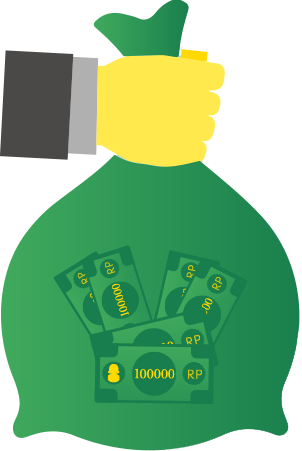
The UK is a great destination for activities such as cycling, surfing, mountain biking, rock climbing and many more.
Always take the right precautions and make sure that you know what activities you’re covered for before you go.
(By Pretty Much Any Insurer Because Of The Risk!):
*Without an Australian licence.
The Aussie Government issue travel warnings for destinations depending on the security issues at hand. You can find them at Smart Traveller
Overall the crime rate in the UK is pretty low so as long as you use common sense and don’t take risks you wouldn’t normally take at home your trip should be trouble free. Be more wary in big cities like London as petty crime is more common in these areas.
 Make sure you only chose licensed taxis. Go for a black cab or book a taxi in advance.
Make sure you only chose licensed taxis. Go for a black cab or book a taxi in advance.

When exploring new places, try to stick to busier areas and avoid walking around alone at night. If somewhere doesn’t look or feel right, avoid it.
 Make sure to watch your drink on a night out to avoid it being spiked. Never leave it with strangers or people you have just met.
Make sure to watch your drink on a night out to avoid it being spiked. Never leave it with strangers or people you have just met.

The United Kingdom is a great place for a family adventure with loads of activities suitable for all ages.
When taking your family out for the day, its best to plan ahead, a little bit of preparation can go a long way!

Pick family friendly hotels or holiday parks. This will ensure there are plenty of things to keep the whole family entertained and some will offer kids clubs or crèches.

Save money on attractions by getting family tickets to places like theme parks and zoos.

Visit museums, beaches and national parks with the kids. They will have a great time exploring and many are completely free!

Baby changing rooms are often only available in female toilets.

Not all restaurants will have high chairs so it’s a good idea to bring a pram.

Childcare does not come cheap in the UK. So if you are thinking of hiring a nanny expect to pay similar prices as you would
at home.
Our pommie cousins may speak the same language as us, but the UK is steeped in tradition and custom. Most Brits pride themselves on being culturally sensitive, and the formality of their conversations will depend on how well you know them. When you're travelling you want to avoid
foot-in-mouth moments as much as possible, so make sure you are in the know to avoid any embarrassing situations.
Be warned some places add a service charge that can be either discretionary or mandatory (usually for larger parties). So make sure you check your receipt before leaving a big wad of cash for your waiter or waitress. Tipping your taxi driver a few pounds is also okay but not expected.

British people are known for their sarcasm - which basically means being rude is paying someone a compliment. Sarcasm is a way of being friendly in the UK so don’t get offended as the person is probably just trying to make you laugh.
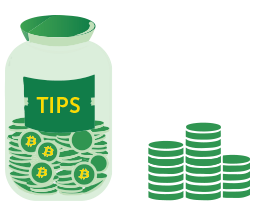
It is a situation every tourist dreads when away on holiday. You don’t want to offend but you don’t want to pay too much if it’s not necessary. In the UK tipping is not expected but it is always nice to show your appreciation for good service. It’s usually around 10 percent at restaurants and it is not customary to tip in bars.
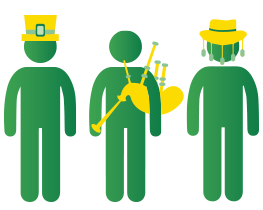
Just as Australians don’t like to be confused for New Zealanders, the English, Irish, Scottish and Welsh don’t like to be confused for each other either. Nothing will rile up a Scotsman, Irishman or Welshman more than being called English. To avoid any awkward situations, and maybe starting a civil war, make sure you know the difference.
The UK can be travelled by plane, train, car or ferry
The small size of the UK means you can explore England, Northern Ireland, Scotland and Wales with relative ease. To travel across the United Kingdom by car or train is a great way to take in some of the beautiful countryside.
Public transport is very good especially in the bigger cities which have extensive train and bus services.
If travelling by train remember to book tickets online in advance. It is a lot cheaper than purchasing them on the day which will be very expensive.
The London Underground or Tube is the fastest way of getting around the capital. But with millions of people using it each day it can be a daunting experience for any traveller. Here are some useful tips when taking the Tube.

Be prepared for this. Expect pushing and shoving when you are getting on and off trains. Taking a lot of luggage on the tube is not advisable, it will be a hassle.

If you don’t fancy being squashed like a sardine in a tin, then avoid travelling at 7.30 - 9.30am and 5.00pm - 7.00pm Monday to Friday. It is also cheaper to travel outside of rush hour!

It goes without saying that large crowds are a pickpockets dream. Make sure you are always aware of where your valuables are on your person when using the Tube.

These re-fillable travel cards can be used on most forms of public transport, and can be topped up online or at any tube station.

The Tube can be very confusing for first-timers. If you don’t know where you are going, ask a member of staff. They will be more than willing to point you in the right direction.

Have your ticket ready before you hit the barrier. London is full of people in a hurry and they are known to be slightly impatient. It will also make you look like you know what your doing (even if you really don’t).

There is nothing that will infuriate a Londoner more than someone standing on the wrong side of the escalator and blocking their path.

If there is one thing that you can count on when using the Tube is that there will be closures and delays. You can get up-to-date information on train services on the Transport of London website.
Getting scammed can happen anywhere, but when you’re a tourist in a new city you’re often a prime target for scams. Read up on the scams you need to know about and you should be A-OK!

Beggars are common throughout the UK.
Whether you choose to give them any or not, always do so politely. Be wary of anyone who approaches you, especially at night.

Make sure you always cover your pin when using an atm or credit card machine. If possible, use your phone to pay as all payments are encrypted or use a credit card as you can dispute charges easier than on a debit card.

The UK has much more relaxed alcohol licensing laws than Aus, but you can still get yourself into trouble. Once venues start closing get straight into a licensed taxi and return to where you are staying.

As with any travel destination there are areas to be avoided as they can be unsafe especially for tourists. Inner city areas can often be more dangerous so keep your valuables hidden, especially at night. Be especially wary of those going past on moped as they are often used by thieves to make a quick get away.

Be wary of event spruikers. There is no guarantee that their tickets are real or that the event they are selling tickets for even exists. If the tickets don’t turn out to be legit by the time you have realised the seller will be long gone along with your money.

You’ll receive a text asking you to call a 090 number to claim your prize. This will result in you being kept on hold indefinitely, racking up a huge bill. Sounds silly, but over 1 million people get roped in each year!
If it’s one thing Australians know about it’s hot weather. The UK might seem a welcome break from the scorching Aussie sun but be careful. Serious sunburn and sun stroke can still happen even in the UK, especially in June to August. Remember always wear sunscreen when in the sun and stay hydrated.
When the sun is shining in the UK, there is no better place in the world, and you'll notice that suddenly a collective smile is on every local’s face!
If you’re planning a trip in the winter months (December - February) remember it can get very cold and may even snow so make sure to pack plenty of warm clothes.
The road can get extremely icy and be very hazardous in winter. If you are driving around, be sure to take extra precautions and drive slowly to avoid a road accident. Alternatively, opt for public transport instead.
Tap water in England, Northern Ireland, Scotland and Wales is clean and completely safe to drink.
The UK has four distinct seasons. It’s hot and sunny in the summer, very cold in winter and generally rains throughout the year. Pack correctly depending of what time of year you are visiting.
The weather is predictably unpredictable. Just because you are visiting in summer that doesn’t mean you should only pack bikinis or budgie smugglers. Be prepared for it to be a little chilly.
Everyone thinks it rains in the UK the whole time, however this is not the case. Although due to what the Brits call “Drizzle” i.e. a light rain, and grey skies it can seem like you go days without seeing blue sky! Always have an umbrella or light rain coat handy.
There are plenty of beaches all over the UK and compared to Aussie beaches they are pretty safe. But you should still be aware of the risks. Here are some handy tips when at the beach.
When it comes to safety on the beaches there are a few things to look out for:
This flag means the area is patrolled by lifeguards and it is safe to swim.
When red flags are flying you should not enter the water as it means there are strong currents and rip tides that can be very dangerous.
This flag means that the area is safe for using watercrafts like surfboard and kayaks. It is unsafe for swimming and using body boards.
This means there are dangerous wind conditions and you should never use inflatables as you could get dragged out to sea.
Your passport is your ticket to ride so try not to lose it down the back of a couch, or leave it in the back of a taxi. Follow these handy steps if you do lose your passport.

Seems simple right? But sometimes your passport may have been left at the last place you stayed so call the hotel.

If you are unable to find it after searching far and wide (or you know for a fact it was stolen) then you need to report it to the government.

Things you will need to do to get a replacement passport include: an application form, photos and possibly booking an interview.

Of it occurring. Ensure you get a police report documenting the loss or theft. You will need this report to make a travel insurance claim.

To report the claim as soon as you can. That way you can confirm cover and seek advice.
 Non-Emergency Police Number
Non-Emergency Police Number
101
 Australian High Commission
Australian High Commission
(44 20) 7379 433
If something serious happens and you find yourself severely sick or injured you’re going to need to get to a hospital, and fast. Always make yourself aware of your nearest hospital, just in case.
 Australia and the UK have a reciprocal healthcare agreement which means that you can use the National Health Service, hospitals and GP services for free.
Australia and the UK have a reciprocal healthcare agreement which means that you can use the National Health Service, hospitals and GP services for free.
 If your condition doesn’t require immediate medical attention but you would like to see a doctor, you can register free as a NHS patient at a doctor’s surgery.
If your condition doesn’t require immediate medical attention but you would like to see a doctor, you can register free as a NHS patient at a doctor’s surgery.
 If you are prescribed medicine you will have to pay for it at a pharmacy.
If you are prescribed medicine you will have to pay for it at a pharmacy.
 In the case of a medical emergency the number to call is 999 or you can call the NHS non-emergency line by dialling 101 if your illness or injury is less serious.
In the case of a medical emergency the number to call is 999 or you can call the NHS non-emergency line by dialling 101 if your illness or injury is less serious.
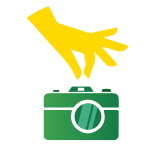
Don’t panic (and don’t fight back if you are aware of the robbery). Your camera isn’t worth as much as your life so best not to risk it.

Contact your embassy or high commission office to get assistance if needed, such as if you have troubles with the local police.

Report stolen keys to your hotel. Replacement keys and locks may need to be arranged.
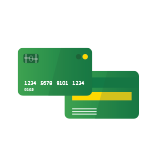
Cancel all credit cards and report them stolen to your bank.

Find the nearest police station and report the incident, and obtain a police report within 24 hours.

If all your cash and access to money was stolen you can arrange for a money transfer from someone back home.

If you need to replace items such as your beloved camera speak to your insurance company to find out what is covered.

Last but not least stay positive. Theft can happen to even the savviest of travellers.
Rain or shine, city living or relaxing in the countryside, we hope your trip to the UK is fun and safe! If something goes wrong, we’ve got you covered.






